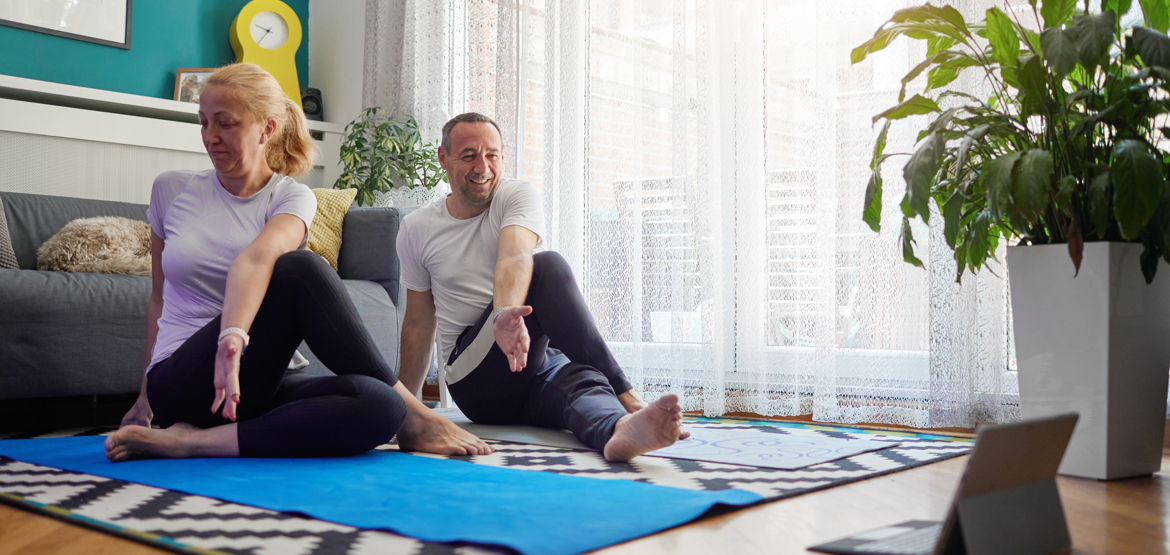How to switch off from your working day without alcohol
Drinkaware's top tips on how to switch off from your working day, without alcohol

For many people, having a drink after work is a familiar way to unwind. Whether it’s a glass of wine in the evening or a pint with colleagues, alcohol can become closely associated with marking the end of a busy day.
But while it may seem like a helpful way to relax, relying on alcohol to switch off can affect both your physical and mental wellbeing, and it may be interfering more with your recovery from work than you realise.
The theme this Alcohol Awareness Week is alcohol and work and we’re exploring how we can find healthier ways to manage stress, unwind, and recover after a long day.
Healthy ways to unwind after work
Finding healthier alternatives to relax and transition out of ‘work mode’ can support your overall wellbeing and help you feel more in control. Here are some tips that can help:
1. Create a clear boundary between work and home life
Especially if you work from home or remain connected via phone or email, it’s important to define when your working day ends. Consider:
- Changing into more comfortable clothes to physically mark the shift.
- Stepping outside for a short walk or doing light exercise to break the mental pattern.
Establishing this kind of transition ritual can help your brain recognise that it’s time to unwind.
2. Unplug from digital distractions
Remaining constantly ‘on’ makes it harder to decompress. Research has shown that digital overload can contribute to burnout and chronic stress.1 Why not try:
- Muting notifications on work-related apps or emails after a certain time.
- Setting a screen-free period in the evening to support better sleep and relaxation.
Start doing activities that promote rest and recovery
There are countless alternatives to alcohol that can promote relaxation without the side effects. For example:
- Mindfulness and meditation: practising daily mindfulness has been linked with lower stress levels and improved sleep
- Creative hobbies: painting, journaling, or other hands-on activities, like gardening, can offer a mental break and sense of achievement
- Physical activity: even low-impact exercise like yoga or stretching can make you feel relaxed
4. Create new habits
Replace your usual after-work drink with an activity you enjoy: a walk, stretching, cooking, reading, or listening to a podcast. Over time, these can become new, healthier habits.
If you enjoy having a drink at the end of the day, maybe with dinner or while watching TV, try replacing your alcoholic beverage with a low- or no-alcohol alternative, a comforting hot drink, or a mocktail you really enjoy. Try experimenting with different flavours and brands so it still feels like a treat, not a sacrifice.
5. Reframe how you connect
For many, social drinking is part of how we connect with others. But connection doesn’t need to centre around alcohol. Explore:
- Social meetups that don’t involve drinking (e.g. running/walking groups, games nights, or volunteering)
- Inviting colleagues or friends to join you in trying something new, like a fitness class or a coffee date
- Talking openly about wanting to cut back, you may be surprised by how many others feel the same
Tips for shift workers and people working on-site
If you work shifts or spend your day on-site, switching off can look a bit different. Long hours, physical work and irregular schedules can all make it harder to unwind without alcohol. Here are some ideas that might help:
Stick to a routine when you can: even if your shifts vary, having a simple routine to mark the end of work can help signal to your body and mind that it’s time to rest.
- Prioritise good sleep: shift work can disrupt your sleep patterns. Avoiding alcohol before bed can improve your sleep quality and help you feel more rested. Try winding down with calming activities like reading, listening to music, or stretching.
- Stay connected: working unsociable hours can feel isolating. Make plans to catch up with friends or family when you’re off shift. Social time that doesn’t centre around alcohol can boost your mood and sense of balance.
- Keep alcohol-free options on hand: after a long shift, you might crave a treat. Having alcohol-free drinks ready like low- or no-alcohol beer, sparkling water, or teas can help you relax without impacting your sleep or recovery.
You don’t need to give up alcohol entirely to feel the benefits. Even small changes like choosing alcohol-free options or implementing drink-free days into your week can lead to better sleep, improved focus, and a greater sense of balance.
If you want to find out more about your drinking, try the Drinking Check